Is AI Generated Content for Local SEO Safe in 2025?
?
Hey there! If you’re curious whether is safe in 2025, you’re in the right spot. I’ve been testing this exact combo—and I want to walk you through what’s working, what’s questionable, and how to do it right. No fluff, no fancy jargon—just clear steps and expert insights.
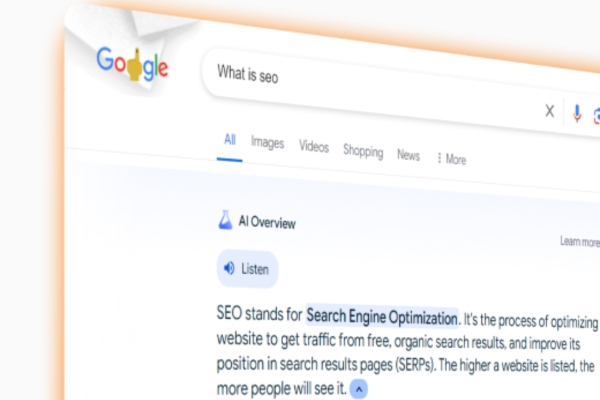
Local SEO used to be all about getting on Google My Business, building local citations, and earning reviews. Now, with and , your local content needs to be laser-focused to show up and drive traffic.
The local SEO community on Reddit has been buzzing about this. One standout comment warned: “AI modes and overviews … change how people find local businesses by summarizing results directly in search, reducing clicks to individual websites.”
That means if your content is just generic or thin, AI might answer the question for them—and you lose the click.

Let’s bust a myth: Google inherently penalize AI-generated content—quality is the key.
“Using AI generated content for your website isn’t automatically bad for SEO but you need to be smart about it. Quality is non-negotiable.”
“AI content can support your SEO if it’s thoughtfully used and provides real value to readers.”
“We haven’t said AI content is bad. We’ve said content written primarily for search engines rather than humans is the issue.”
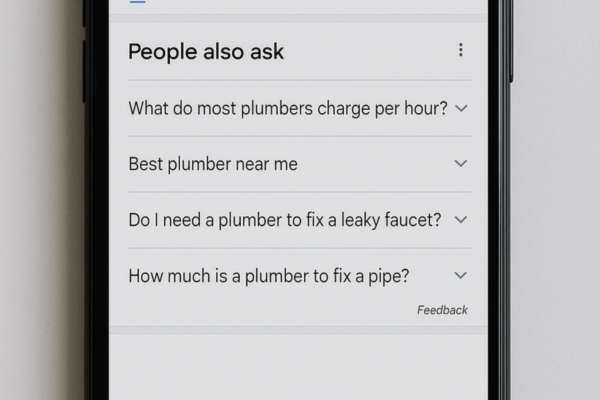
Start by picking a topic that your ideal customer would . Think like a local.
Check your Google Business Profile search queries, local Facebook groups, or on Google for topic clues.
Once you’ve got a topic, dig into .
Use tools like , , or even to brainstorm related keywords and FAQs.
If you’re using GHL (GoHighLevel), tap into any search term data coming through your funnels.
“Local people want a podcast studio in Austin: what questions or keywords would they search before booking?”
Now create a simple outline to keep the AI focused:
Add a note like “answer as a local expert” to your prompt—it helps tailor the tone.
Feed your outline into ChatGPT or another AI tool and let it help you fill in the blanks. Use it as a content assistant, not the whole writer.
“Write a 200-word introduction for a blog post titled ‘Best Podcast Studios in Austin’ that explains why local creators are choosing to record here. Keep it friendly and informal.”
Break your post into chunks. Ask AI to write one section at a time so you can control tone and flow.
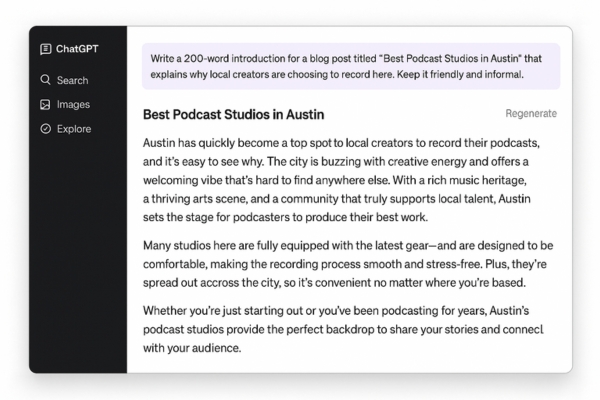
This is where the real SEO magic happens. AI can help you get the structure down, but you bring in the tone, local insight, and trust factor.
If your post still feels bland or overly generic, it likely won’t rank. This step is where your human touch makes all the difference.
To show up in and map-related searches, structure your content with:
“The studio is a 5-minute walk from Nasugbu Public Market and offers parking for motorcycles and SUVs.”
Use keywords naturally: “Austin podcast recording,” “affordable studio in Austin,” etc.
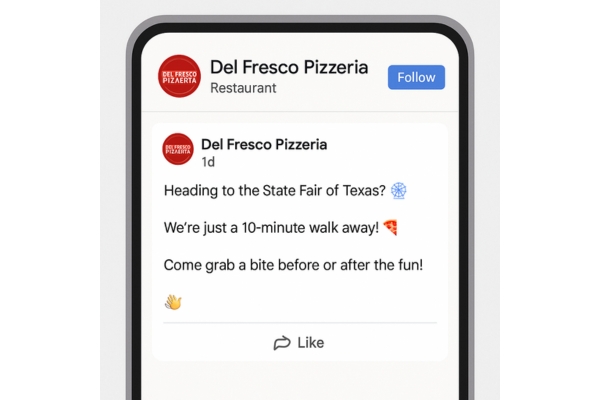
Hit publish—but don’t stop there. Promote it in places where :
Also, submit your post to local directories and forums when possible to help build relevance and backlinks.
Before promoting your post, . This helps both users and search engines navigate your site and understand the topic better.
As your content ages, —update stats, reword sections that feel stale, and add any new FAQs you’ve picked up from readers or customers.
Think of it like watering a plant: the more love you give it, the more it grows in rankings.
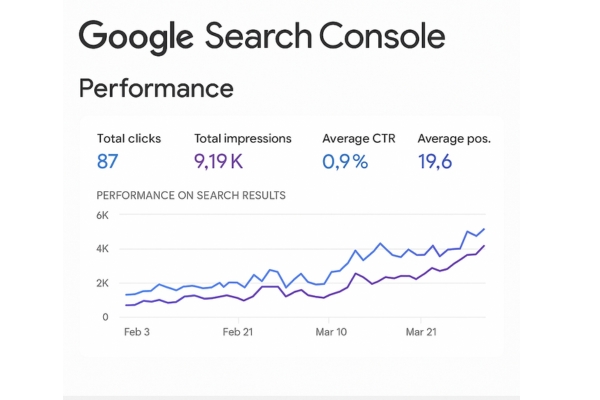
SEO isn’t one-and-done. After a week or two:
It’s all about experimenting, learning, and optimizing as you go.

AI-generated texts can be useful for SEO if used wisely. They’re great for structuring content and fixing clarity but must be edited for authenticity.
Some marketers report seeing reduced traffic from AI Overviews. Still, if you prioritize human-focused, locally relevant info, AI content remains safe and effective.
Pitfalls to Avoid
Done right, isn’t risky—it’s actually a smart, scalable way to stay relevant in 2025 and beyond.
Just remember: AI helps you get started, but it’s that make the content rank-worthy. Focus on clarity, quality, and usefulness, especially in a world where AI Overviews are becoming the norm.
And if you’re managing multiple locations or service pages, having a clear strategy (and organized workflow) helps you stay ahead—

Yes, as long as it’s high-quality, human-edited, and locally relevant.
Not if it’s helpful, original, and follows SEO best practices.
Yes, especially if your content answers questions clearly and concisely.
4. Should I use AI to write my entire blog post?
Use it to draft, but always revise and add a human/local touch.
5. What’s the biggest mistake people make with AI content?
Relying too much on AI without editing or adding local relevance. It ends up sounding generic and won’t rank.









